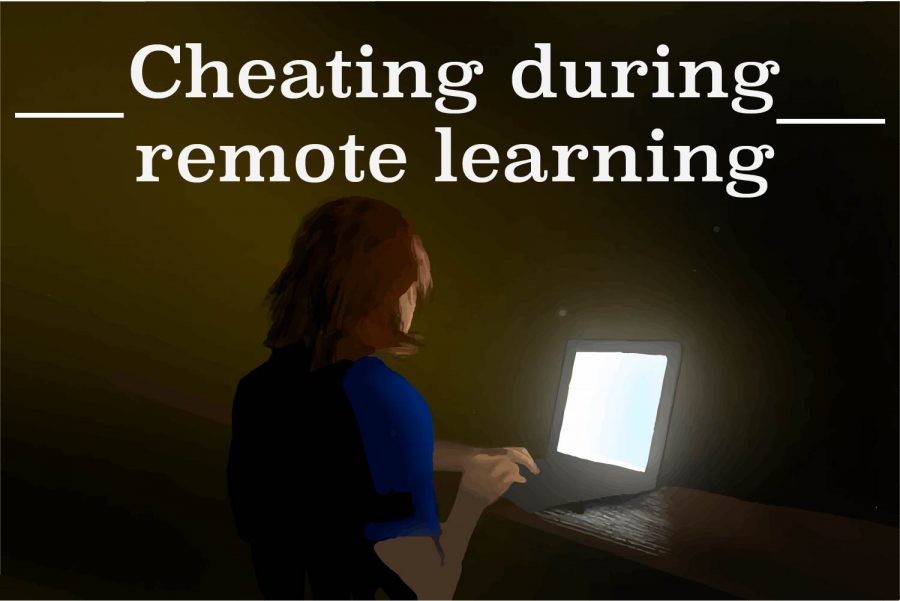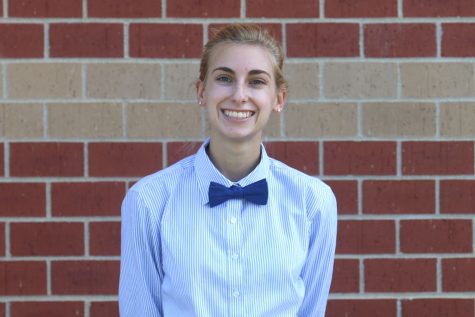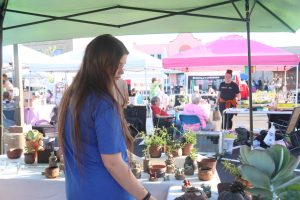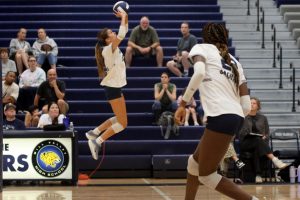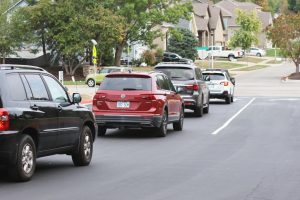Teachers find ways to prevent cheating during online learning
Teachers and students adapt to promote academic honesty in the new hybrid learning model
November 3, 2020
Many students put pressure on themselves to perform well in school, and this year, abundant new responsibilities and pressures have emerged from the hybrid learning model. Whether at school or learning remotely, students can find themselves resorting to cheating to relieve this stress — and with the new remote days, cheating has potentially become immensely easier.
However, both teachers and students are adapting to promote academic honesty and its importance, especially for test days on Zoom. Math teacher Sarah Sides, who has conducted two exams over Zoom so far, explained a few ways to help prevent cheating digitally.
“Before a test in my optional remote class, I do have students put away all of their notes, etc. and they must show me their work space. They also have to leave their camera on the whole time,” Sides said.
Additionally, under Sides’s teaching method, cheating is generally discouraged, but in a friendly and academic way.
“I use a flipped classroom and I think it discourages cheating, whether learning in-person or remotely,” Sides said. “Under my flipped classroom, I don’t give any points or grades for completion of daily worksheets. I want students to understand that worksheets are about more than just a grade; instead worksheets are meant to be a students’ practice.”
Emphasizing that practicing math is just like practicing to be successful at a sport, Sides added that a student understanding the material is more important than just receiving a good grade by being academically dishonest.
World History teacher Ian Nichols doesn’t use a flipped classroom method, but he still encourages students to be academically honest, especially during virtual learning.
“I would hope that they don’t [cheat], but I’m also not naïve enough to think that it is not going to happen,” Nichols said. “Even in the past with a normal school model, students would find ways to cheat, so I can’t imagine that’s going to be any different with the remote/hybrid model.”
Acknowledging the potential cheating opportunities that may tempt students, the two teachers, along with many others, embark upon ways to keep students on the right track with their learning. Technology may be causing a great amount of difficulties this year, according to Sides, but its extensive use can also help promote honesty in the classroom—both physical and virtual.
“I use a website called GoFormative to give [homework] checks and exams to my optional remote class. The website tells me when a student answers a question by copying and pasting. There are certainly other cheating measures it protects against, too,” Sides said.
However, despite the new opportunities to cheat presented to students, both Sides and Nichols have great faith in students and care about their futures.
“Oftentimes, cheating and getting away with it takes as much time and effort as just doing the work—so students would be better off doing what is expected of them,” Sides said.
Nichols agrees.
“Ultimately, [cheating is] going to negatively affect them in the long run, whether they think it will or not,” he said.
Sides, despite accepting the fact that cheating is likely still happening out of her control, places her trust in students to practice honesty in the classroom.
“I think there will always be students who make bad decisions, whether that’s cheating or something worse, and a hybrid learning model isn’t going to change that,” Sides said. “On the other hand, we have a lot of upstanding individuals here at MV who are honest, trustworthy, and have high standards of character, and I’d like to believe that they will continue to make good choices in whatever learning model is presented.”


